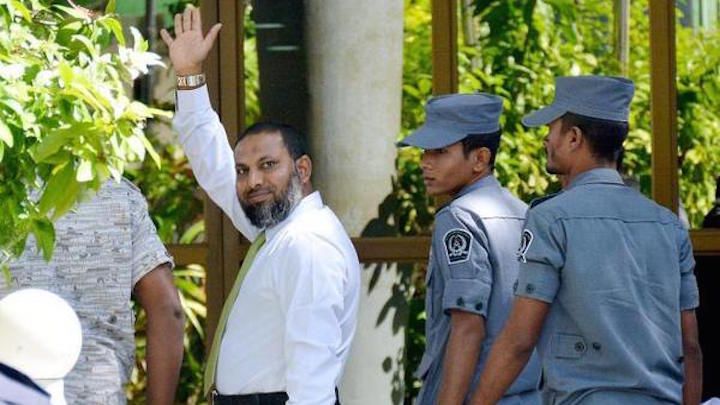Imran petitions UN rights panel over terror conviction
A local human rights NGO has petitioned the UN Working Group on Arbitrary Detention on Sheikh Imran Abdulla’s behalf, requesting a judgment declaring the Adhaalath Party president’s terror conviction illegal.

14 Apr 2016, 09:00
Imran was found guilty of inciting violence in his speech at a 20,000-strong protest march in May last year and sentenced to 12 years in prison on February 16. His widely condemned conviction marked the first terrorism sentence passed in the Maldives over a speech made at a political gathering.
The High Court has wrapped up appeal hearings in Imran’s case, but a date for a verdict has not been set.
Former President Mohamed Nasheed and former Defence Minister Mohamed Nazim, who were both handed lengthy jail terms last year, have previously petitioned the UN WGAD, a specialised agency comprised of five independent experts.
The group had ruled in September last year that former Nasheed’s imprisonment on a terrorism charge was illegal and politically motivated.
Become a member
Get full access to our archive and personalise your experience.
Already a member?
Discussion
No comments yet. Be the first to share your thoughts!
No comments yet. Be the first to join the conversation!
Join the Conversation
Sign in to share your thoughts under an alias and take part in the discussion. Independent journalism thrives on open, respectful debate — your voice matters.




